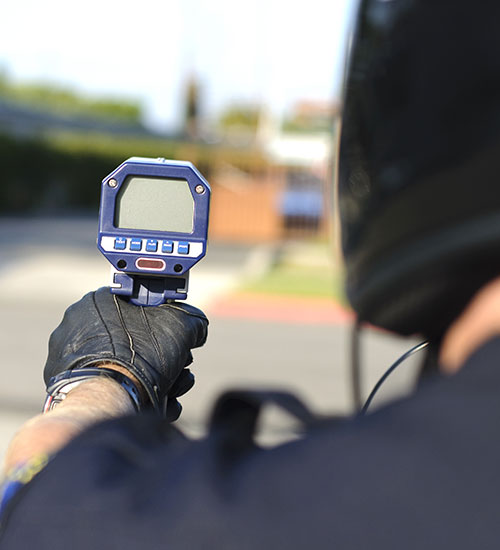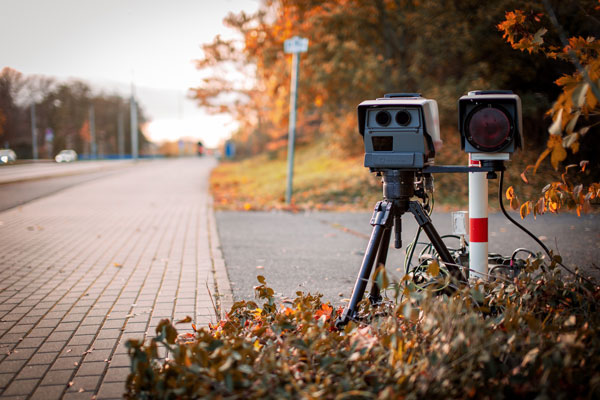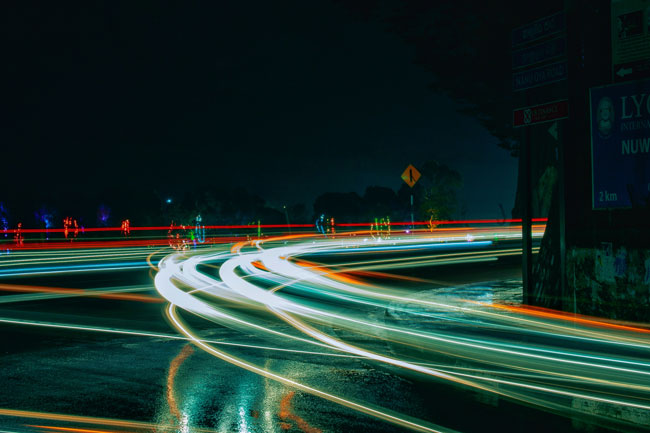The most suitable offer for your needs
The packages do not include the holding of a trial or any other legal act.
In the event that a trial is necessary, your lawyer will inform you of the costs associated with it.
Some additional costs may be added (request for postponement, travel if necessary, etc.)
*Applicable only for offenses related to the Highway Safety Code

Speed limits set by the Highway Safety Code are not mere suggestions; they are laws that must be obeyed. Speeding is simply driving faster than the legal limit, and it can lead to consequences like demerit points, fines, or both.
Few drivers can claim to have never driven a vehicle above the permitted speed limit. However, in Quebec, speeding can lead to a hefty fine and demerit points on your license. The number of demerit points varies based on your speed compared to the limit in the area where you were caught.
Furthermore, if you receive a speeding ticket in a construction zone, be prepared for the fine to be doubled!

Excessive speeding
Speeding comes in two categories: regular speeding and excessive speeding. Let’s clarify these for you. Regular speeding involves driving above the speed limit. Excessive speeding, on the other hand, is more complex.
Excessive speeding occurs when a driver exceeds the speed limit by:
- 40 km/h or more in an area with a limit of 60 km/h or less.
- 50 km/h or more in an area with a limit from 60 km/h to 90 km/h.
- 60 km/h or more in an area with a limit of 100 km/h or more.
The consequences of excessive speeding are more severe. For a first offence, your license may be suspended for seven days, 30 or even 60 days. Even more, an excessive speeding conviction remains on your driving record for 10 years, even if demerit points are removed after two years. This extended period means that repeated offences within this timeframe will result in harsher penalties.

Photo radar and excessive speeding
Quebec’s roads feature numerous photo radars installed in areas where speeding is more likely. These devices automatically capture images of vehicles and license plates exceeding the speed limit. A police officer reviews the evidence, generates an offence report, and sends it to the Bureau des Infractions et Amendes. You’ll then receive a ticket by mail with 30 days to contest your ticket. While radar evidence is compelling, it can be challenged in certain situations. For instance, photo radars must be announced on roads, and no demerit points are imposed for offences based on photo radar evidence.

What can MTL Ticket do for you?
Consequences for speeding, especially excessive speeding, can be significant. Our team includes specialized speeding ticket lawyers well-versed in the Highway Safety Code. Upon receiving a speeding ticket, you have a mere 30 days to initiate a challenge. Reach out to us immediately after obtaining the ticket.
Upon reviewing the evidence against you, if there’s a viable defence, we’ll assist you in contesting the ticket to save you from fines and demerit points. Even when no defence is available, we can negotiate on your behalf to secure the best possible resolution given the circumstances. We’re here to support you.






